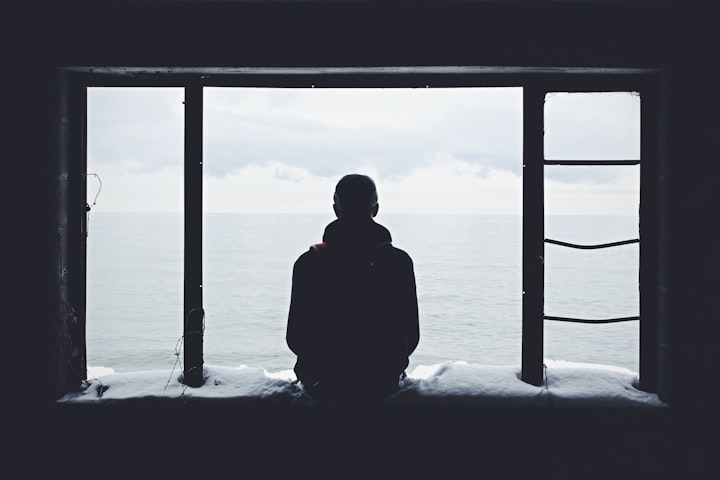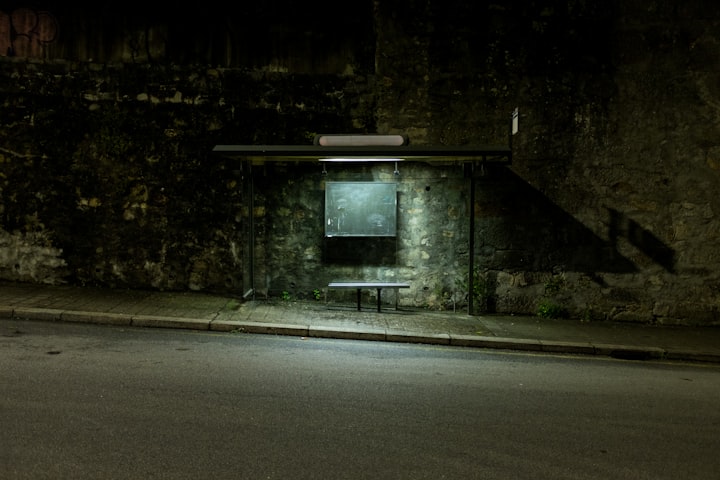Ins and Outs
Navigating Through Social Provocations

As we move throughout the world as children, we often view our experiences from superficial, literal perspectives. Our perceptions are diluted, and we only understand that of what is directly in front of us and naturally, when presented with overcomplexities, our efforts to comprehend these situations often result in misinterpretations or frustration. This patten is reflected universally in our youth, so essentially it is inevitable, however, in the duration of my upbringing, this would prove to be quite the motif as the introduction of unnecessarily complicated situations, concepts, and relationships would contribute to not only a looming sense of perplexity, but of social and internal ostracization as well; a social shock nonetheless that would extend into my adolescence and eventually reach a sound resolution in the form of several longwinded life lessons.
______
My earliest memories are of my parents already divorced. They’re scenes of visitation days and jumps between homes, often interrupting playdates amongst the busy proceedings of early childhood. While I love both of my parents to extreme extents, I was introduced early to the absence of typicality, often wondering even in my youth what my circumstances would have been like had I been reared under a united home. Though thankful that this relationship was defined early in my childhood, I still felt somewhat amiss in the absence of any relatability. In my adulthood I have come to recognize that against the surfeit of our worldly plights, divorce is of very miniscule proportion, though as a child, the disconnect between me, and this prototypical image of a united, happy family was far more dramatic. Though soon, this would all shift with the introduction of a new patriarch.
______
Let’s call him Father #2. At the start, the introduction of this new father figure was a promising development in my family, especially for my mother, who had been raising her two sons primarily on her own. He was attendant, financially sound, and impressive – at least this is how he appeared. Years of carefully constructed manipulation and pathological lying had contributed to the formation of this seemingly ideal father figure, a man capable of not only providing the needs for his family, but the vividly extraneous wants as well. It was not long before his superfluous spending habits and suggestive fiscal decisions began to raise some eyebrows from the members of our community and eventually word caught on that perhaps his swift maneuvering between the class system was not entirely legal. Neighborhood parents became extremely concerned and gradually curtailed any involvement between us and their children. Years long friendships began to fade and slowly me and my brother were left wondering why our letters remained unreturned, why phone calls were left unanswered, and why nobody seemed to have the time for us anymore. Young and blind to the treacheries that were upon us, we felt alone.
______
My mother, here now to four young children, would eventually come to bring us this revelation, doing so plainly, in candid fashion so as to prevent any further deception. To learn at the age of 8 why our family was left ostracized, a house to avoid at the end of the corner which laid wrapped in embezzlement, fraud, and laundering. Money stolen from peers, drained by the hands of forgery; wire-fraud, tax evasion, eviction, repossession; the list went on. The shock hit all of us, our mother included, who knew no more than the rest of us at the time, though in retrospect, the social withdrawal made clear sense. The manipulative influence of Father #2 was damaging, scrupulous, and far-reaching. How could we blame the caution of our community, though we ourselves were still left isolated and embarrassed?
______
Naturally, my mother left Father #2 in the hands of the law and set out with us to start anew. This was no painless feat of course, as she would be left with no job, no money, and four children. We began a string of frequent moves, trying to recover from the financial damage left before us, and in doing so, stability was a luxury left behind. Sometimes twice in a year, our family would relocate, and eventually our impermanence resulted in homeschooling. Our lives were too cumbersome for the constant enrollment to whichever school system we were zoned at a time, and so my mother did what she does best and confronted the issue by whichever means necessary, her own. For two years we practiced home learning, and though my mother made efforts to occasionally involve us in programs within our community, socialization with children our age was significantly short.
______
The familiar, unnerving sense of isolation and unrelatability would ensue yet again as we made our transition from home learning back into public school. Our mother, beginning to finally maintain some stability for our home, found that home schooling was no longer necessary as our long line of annual relocations began to come to an end. Unsure of what exactly to expect my first day back into the public-school setting, I tried my best to impress my peers with what would only be the worst outfit I had ever worn – a bright orange polo shirt with army green cargo pants and enormous, chunky black sneakers. Clearly, my sense of fashion within the fourth-grade scene was a little out of touch, as literally nobody spoke to me for at least a week and a half in. to my surprise, 9-year-olds were extremely elitist, and seeing as how I had absolutely no background nor history with my peers whatsoever, I found myself eating lunch alone during these early days of my attendance.
______
However, this would all change soon enough as I eventually found a small group of like-minded individuals who also could not dress to save their lives and we began a clique of our own which only grew as the weeks went on. I began to feel more comfortable and started acting more like myself, a social yet admittedly flamboyant child who was just glad to finally stay within the same county for longer than a year. I was still learning the ins and outs of the public-school social scene, so naturally there were “boundaries” that I would unknowingly cross and cliques which I would intrude on, however I just interpreted my flexible socialization as a sign of well-deserved comfortability and used it to propel my potential collection of newfound friendships even further. However, I was soon reminded of the crudeness of children as I was confronted with yet another foreign discovery, the age-old rumor.
______
To my surprise, my aforementioned flamboyancy was not a quality considered common amongst this particular pool of fourth graders, and as children often do, they began to parrot words and phrases which were far beyond their full comprehension. Eventually I noticed that one of these terms stood out further and more often than the rest and found myself wondering: what does gay even mean? Eventually, I grew tired of this seemingly random aversion that several of my male peers would express and sought revelation in my closer circle, though the reaction was far from assuring. Naïve and still green to the realities and complexities of our society their provided definition of homosexuality was heavier on the emphasis of oddity than it was naturality. Still without full grasp of this newly introduced concept did I begin my first fit of repression and began the tumultuous habit of second guessing my presentation in every branch of social interaction so has to avoid the overfamiliar sensation of being too far on the outside.
______
Unfortunately, as I ascended from elementary into middle school, the evidence of my sexuality only grew, and naturally, so did the homophobia. Prejudice no longer came from just a mere gaggle of classroom boys, but instead spread across the grades becoming a common topic amongst the mundanities of juvenile gossip. It reached the point where I could predict the question before it was even asked and though my answer was always a closeted denial, a clash between my repressive repudiation and the unwavering reality of my orientation continued to brew. Though I had solidified a sound social circle of individuals who were mature enough to not care about the trivialities regarding my sexual orientation, the explicitly frequent judgment from the remainder of my peers was familiarly disconcerting. This was most apparent in the often gendered traditions of my school, such as separating the girls from the boys during gym class, naturally leaving me in the pit of judgmental pursual. Thankfully though, this cycle of perpetual social shock would soon come to its official close as I moved up towards my high school years and learned the importance of unapologetic self-acceptance and thus, actualization.
______
Growing tired of the psychological and bodily effects of this recurring social anxiety, I began to take stock of its antecedents and realized that I was commonly allowing the thoughts and actions of other people determine my social perspectives. Embarrassed by the exploits of this once patriarchal figurehead, unnerved by adjustments between private vs. public school settings, and exhausted by the torments of prejudice and subsequent self-repression, though not necessarily whole in relation, held a common enemy. I was adopting responses to other people’s influences, rather than focusing on my own. Had I spent more time reflecting on my own thoughts and feelings regarding my experiences, I would have been able to develop a more fortified sense of self comfortability and of confidence, two factors which I believe were long overdue. It was not until I was able to let go of this complicated fixation that I truly felt liberated, proud of my upbringing, of my sexuality, and of myself.
______
I think often of the words of my mother. “Only you can control how others make you feel”. Though it took me time to accept this awareness, this responsibility of emotional regulation and of pride, I am glad that I did. I was able to come out, to accept my past, and to ground myself in a stronger, more confident reality. I offer the same advice for other’s experiencing social shock. Though it seems simple, only you can truly control how others make you feel, so why not choose to prioritize your own comfort.
About the Creator
Michael Lamarche
During the Pandemic, I sought to explore writing. I genuinely thought I was on the cusp of poetic genuis, creating metaphors only comparable to Shakespeare himself. Now, I see I fall more under a Dr. Seuss level - only without the racism.






Comments
There are no comments for this story
Be the first to respond and start the conversation.